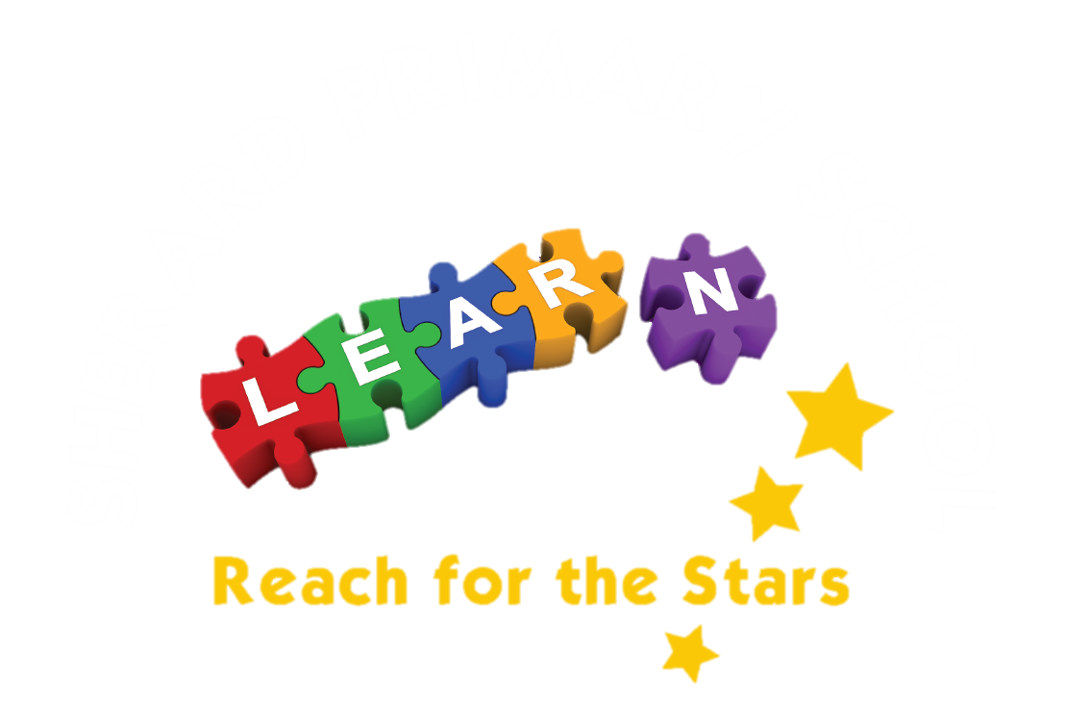Subject Information
PSHE and Citizenship
PHSE & Citizenship education is an important part of our curriculum and embedded in the life of the school. The Science and Personal, Health and Social education, (PHSE) programmes support this.
The school Uses the Jigsaw scheme of work to deliver much of PSHE & Citizenship curriculum Jigsaw PSHE brings together Personal, Social, Health and Economic education, emotional literacy, social skills and spiritual development in a lesson-a-week programme.
Designed as a whole school approach, Jigsaw provides a comprehensive scheme of learning for Foundation Stage to Year 6.
Jigsaw holds children at its heart and its cohesive vision helps children understand and value who they are and how they fit and contribute to the world.
Jigsaw contributes to the British Values agenda very significantly, both through the direct teaching of information and through the experiential learning children will enjoy.
The 5 strands of the British Values agenda have been mapped across all Year groups.
If you would like to find out more about Jigsaw then click on the link below.
Sex and Relationships Education
Our Relationships and Sex Education (RSE) curriculum begins, in an age appropriate way, from Reception onwards. It is a statutory requirement that our Relationships and Sex Education (RSE) Policy is reviewed annually by both staff and governors. We treat this subject as a joint school/parent responsibility.
Our current RSE policy is in line with the revised DFE guidance which will become mandatory in 2020.
Reading
Here at Sherard Primary School we endeavor to instil a love of reading into all of our children. We want all of our children to enjoy reading and appreciate the value and comfort that a good book can bring. Therefore, encouraging children to read and introducing them to a range of books, which will hopefully create an intrinsic desire and motivation to read, is part of everyday practice across the whole school.
To ensure our children grow up with a desire to read we ensure that our libraries are brimming with new material to interest the children and that books read in class are varied, relevant and engaging. We feel it is important that children are exposed to classic authors such as Roald Dahl, Enid Blyton, Charles Dickens and William Shakespeare – expanding their horizons when it comes to choosing what they want to read.
We have a well stocked and inviting library which encourages children to spend time looking for interesting books and to read for fun.
Accelerated Reader
Since September 2018, we have used Accelerated Reader (AR) to monitor, structure and reward children's reading across the school in years 5 and 6.
Accelerated Reader is a computer program that helps teachers manage and monitor children’s independent reading practice. Your child picks a book at his/her own level and reads it at his/her own pace. When finished, your child takes a short quiz on the computer - passing the quiz is an indication that your child has understood what has been read.
Click the AR Bookfinder link to find appropriate reading material linked to your child's ZPD range. This enables children, parents and relatives to find books that will interest children whilst still ensuring they are appropriately challenged and supported in selected reading material.
Visit http://www.renlearn.co.uk/accelerated-reader/ for further information.
Information on Accelerated Reader
Religious Education
At Sherard Primary School we follow the agreed Leicestershire RE curriculum
This revised syllabus for religious education (RE) for schools in Leicestershire builds on the strengths of previous syllabuses and provides a vision of, and the basis for, the development of RE over the next five years, 2021-2026.
Leicestershire͛s agreed Syllabus Conference (ASC), is the statutory body that must be convened every five years to determine the nature of RE in its schools.
The ASC is committed to providing the structures and support systems that will enable the teaching of RE in a manner that is coherent, progressive, pedagogically and philosophically sound, and that will promote the cognitive, spiritual, moral, social and cultural development of all learners
Leicestershire Agreed Syllabus for Religious Education
Mathematics
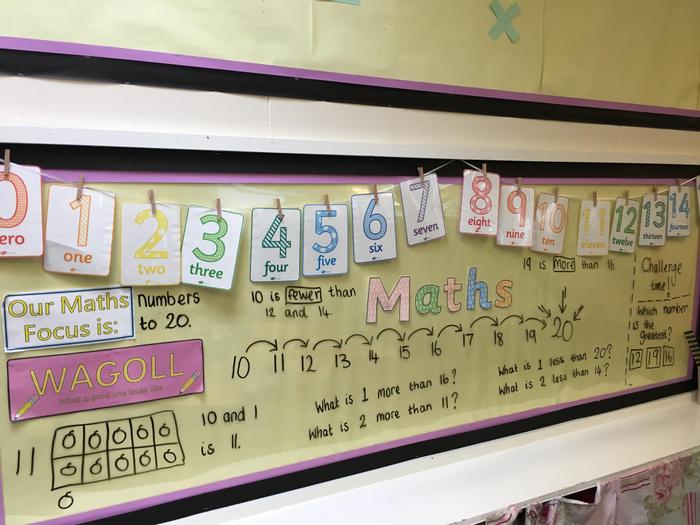
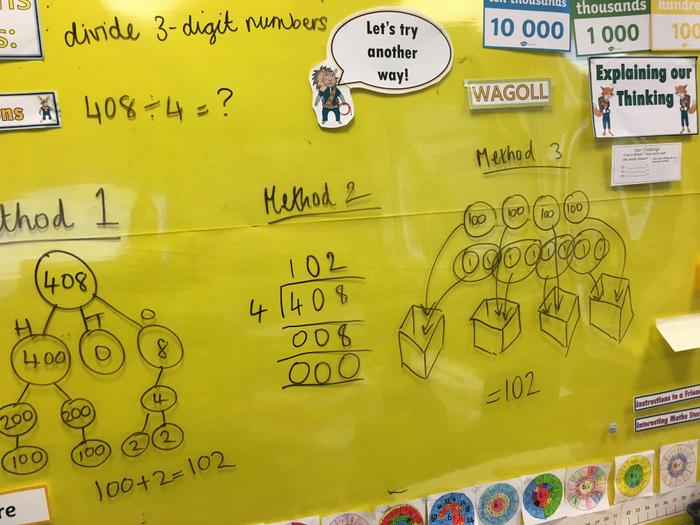
At Sherard, we share the belief that Mathematics is a creative and highly inter-connected discipline that has been developed over centuries, providing the solution to some of history’s most intriguing problems.
It is essential to everyday life, critical to science, technology and engineering, and necessary for financial literacy and most forms of employment. A high-quality mathematics education therefore provides a foundation for understanding the world, the ability to reason mathematically, an appreciation of the beauty and power of mathematics, and a sense of enjoyment and curiosity about the subject.
The national curriculum for mathematics aims to ensure that all pupils:
- Become fluent in the fundamentals of mathematics, including the varied and regular practice of increasingly complex problems over time.
- Reason mathematically by following a line of enquiry, understanding relationships and generalisations, and developing an argument, justification or proof using mathematical language.
- Can solve problems by applying their mathematics to a variety of problems with increasing sophistication, including breaking down problems into a series of simpler steps and persevering in seeking solutions.
Mathematics is an interconnected subject in which pupils need to be able to move fluently between mathematical ideas. The programmes of study are, by necessity, organised into distinct areas, but pupils will make rich connections across mathematical ideas to develop fluency, mathematical reasoning and competence in solving increasingly sophisticated problems. They will also apply their mathematical knowledge to science and other subjects.
The expectation is that the majority of pupils will move through the programmes of study at broadly the same pace. However, decisions about when to progress will always be based on the security of pupils’ understanding and their readiness to progress to the next stage. Pupils who grasp concepts rapidly will be challenged through being offered rich and sophisticated problems before any acceleration through new content.
Those who are not sufficiently fluent with earlier material will consolidate their understanding, including additional practice, before moving on
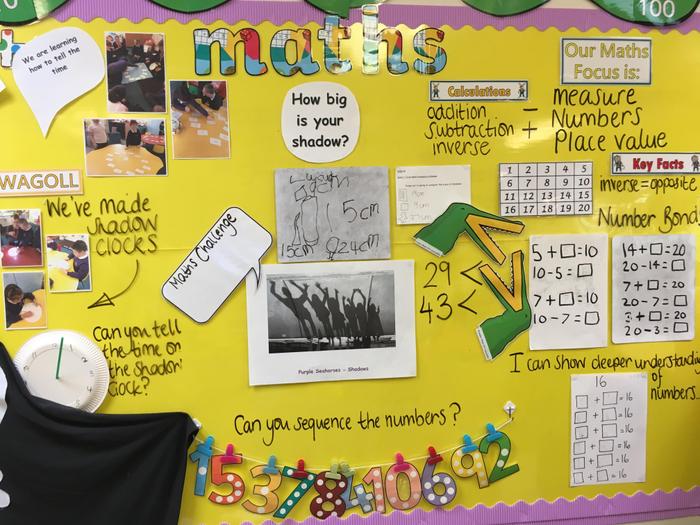
Times Tables Rock Stars
Sherard Times tables Rock Stars Hall of Fame
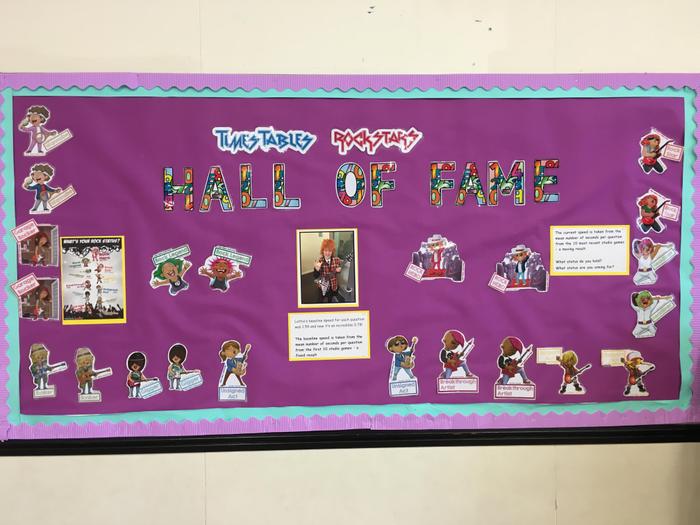
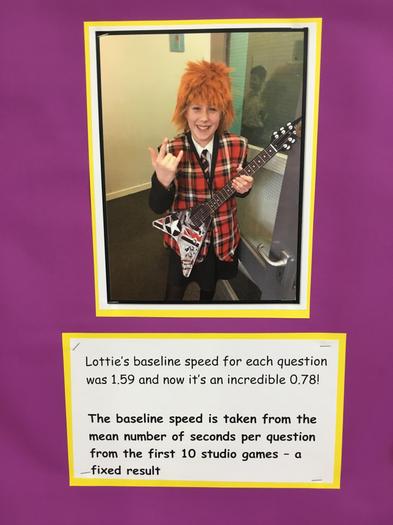
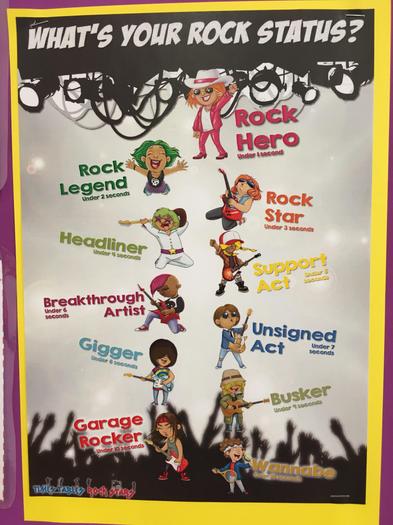
At Sherard we are all aiming to become Times Tables Rockstars and know our multiplication facts in lightning speed! Every week, the children will complete a times table test in class and depending on the results, will be set new tables to pratise.
Times Tables Rockstars is a website that lets children practice their times table in a fun, engaging and rewarding way. It lets them create and build a cool avatar, join a battle of bands against other classes and compete in times tables festivals against children around the world!
Once you are on the website you will be asked to login. Start typing in "Sherard Primary School" and click on the school's name when it appears.
Then put in your username and password to login. Each child will have been given their logins by their teacher.
How the site works
When you login in to the website, you will be greeted by a page that looks like this
This is your dashboard, where you can play any of the four main game modes. To get back to this page at any time, click on the dashboard tab in the top left corner of the screen.
When you are in the dashboard, you will see the four main game modes at the bottom: Garage, Studio, Festival and Arena. Below is an explanation of each
Garage
We recommend that children play Garage by default as it is designed help them get faster. In this mode class teachers will set which times tables children can focus on.
The website will also work out which questions children struggle with so it will then ask those more often.
Additionally, children playing in the Garage will get 10 coins per correct answer rather than the 1 coin per answer in the other modes. This means more money to spend on their avatar!
Studio
Just like a rock star recording their next big album, children should play in the studio when they are ready to give their best performance. The questions can be anything up to 12x12.
When you play in the studio the website will work out your times tables speed, or how long it takes you to answer each question. Once you have played 10 games in studio the website will work out your average and you will be able to see whether you are a Rock Star, Rock Legend, or even a Rock God!
Arena and Festival
The Arena and Festival are the multiplayer versions of the game. If children want to compete against each other they can go into the arena and do battle with other children!
In the Arena, children can compete against children in their class who are playing at the same time,
In Festival however, the games are open to anyone, anywhere!
New games start every 15 seconds. Just click on the one you want to join. It will highlight in green. Wait for the game to start (timer is on the left) and crush your opponent!
Top Tips
Here is some expert advice to get yourself top of the leaderboard:
- If you're on a computer, use the number pad on the right of the keyboard.
- Keep your right hand on the number pad and have your left finger on the backspace to correct mistakes instantly.
- Try your hardest to figure out the answer to each question. The process of working it out will help you remember it for next time.
ICT and Computing
Computing Long Term Overview
Computing is used across all subjects:
- to engage children with their learning;
- help children work independently;
- help children communicate their learning on lots of different platforms (word processing, video, blogs, presentations etc);
- to enable children to become digital citizens of the future.
At Sherard we want our children to be digitally literate and use the internet and apps safely; all our children are taught the importance of E-Safety. Children will also feel confident in using word processing, spreadsheets, presentation and media software as part of their daily curriculum work.
From September 2014 computing was also introduced into the curriculum. This will develop our children's understanding of how computers work. They will develop knowledge of sequencing, programming and coding to develop their own systems, programs and even design simple games.
The computing curriculum at Sherard aims to give all our children the opportunity to access emerging, innovative technology, enhancing curriculum and enriching multi-media skills through interaction.
Languages
At Sherard Primary School we have chosen to focus on learning French. All pupils in KS2 will have the opportunity to learn, practice and consolidate the learning. Those pupils in Year 5 and 6 will be taught French by a Languages Specialist Teacher. We also look for opportunities to celebrate cultures from around the world as part of our language teaching. For example, by celebrating the European Day of Languages every September.
